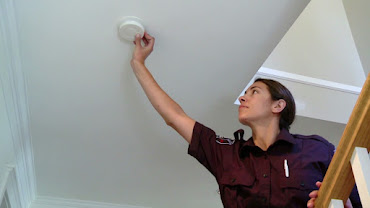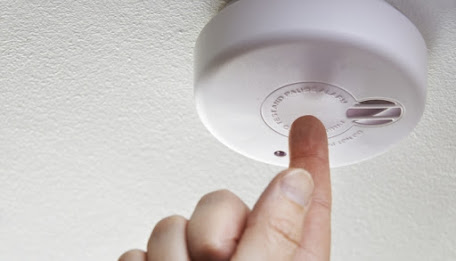Fire Alarm Legislation in Queensland: Protecting Lives and Properties
Fire
safety is a critical issue in Australia, with
countless
incidents reported each year that cause significant damage to
properties and loss of lives. Fire
alarms are essential components of any fire safety plan, as
they provide early warning to occupants of a building, allowing them
to evacuate safely and quickly in case of a fire emergency. In
Queensland, there are strict fire alarm legislation guidelines that
property owners and managers must comply with to ensure the safety of
their occupants. This article explores the fire alarm legislation in
Queensland, highlighting the key requirements and penalties for
non-compliance and also provides a smoke
Alarm installation services.
Did
you know that failure to comply with fire alarm legislation in
Queensland could result in severe penalties and endanger lives and
properties?
Introduction
Fire
alarms are life-saving devices that have become ubiquitous in most
buildings in Australia, including residential, commercial, and
industrial properties. The Queensland Government has enacted fire
alarm legislation to ensure that property owners and managers take
adequate measures to protect their occupants from fire hazards. The
legislation provides a framework for fire safety standards, testing,
and compliance requirements that must be adhered to for all buildings
in Queensland. Non-compliance with these regulations can result in
severe penalties and endanger the lives and properties of
Fire Alarm Legislation in Queensland
The fire alarm legislation in Queensland applies to all buildings where people reside, work, or visit. The legislation requires that buildings have a suitable fire detection and alarm system installed and maintained in accordance with the Queensland Development Code Mandatory Part 6.1. The code outlines the requirements for the installation and maintenance of fire detection and alarm systems,
The type and location of fire
The number of alarms required based on the size of the building and the
The level of audibility of
The power supply and backup
The testing and maintenance
Compliance
Property owners and managers must comply with the fire alarm legislation in Queensland to ensure that their buildings are safe for occupants. Compliance requirements
1. Installation and maintenance of fire
The Queensland Development Code Mandatory Part 6.1 outlines the requirements for the installation and maintenance of fire alarms. Property owners and managers must ensure that they install an appropriate fire alarm system and maintain it in accordance with the
2. Regular testing of fire alarms
Regular testing of fire alarms is essential to ensure that they are functioning correctly. Property owners and managers must ensure that they test their fire alarms regularly and keep records of the
3. Evacuation plan
A comprehensive evacuation plan is crucial in case of a fire emergency. Property owners and managers must develop and maintain an evacuation plan that outlines the procedures for evacuating the building in case of a fire
4. Fire safety
It is essential to provide fire safety training to all occupants of a building to ensure that they understand the evacuation procedures and fire safety
Penalties for Non-Compliance
Non-compliance with fire alarm legislation in Queensland can result in severe penalties, including fines and legal action. The penalties for non-compliance vary depending on the type and severity of the offense. For example, failure to install an appropriate fire alarm system can result in a fine of up to $20,000 for an individual or $100,000 for a corporation. Failure to maintain a fire alarm sy
Fire Alarm Legislation in Queensland
stem can result in a fine of up to $5,000 for an individual or $25,000 for a corporation.
Conclusion
Fire alarm legislation in Queensland is critical in ensuring that buildings are safe for occupants. Property owners and managers must comply with the legislation to avoid severe penalties and, most importantly, to protect the lives and properties of occupants. Compliance requirements include the installation and maintenance of fire alarms, regular testing of fire alarms, & development of an evacuation plan.




Comments
Post a Comment